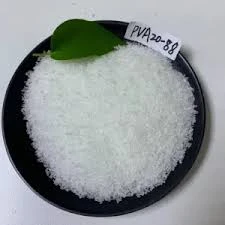The Role of Chemical Auxiliary Agents in Modern Industry
Chemical auxiliary agents are essential components across various industrial processes, playing a crucial role in enhancing the efficiency, effectiveness, and quality of products. These agents, generally added in small quantities, help to facilitate chemical reactions, improve product stability, and enhance the overall performance of materials. Their applications span numerous sectors, including textiles, plastics, pharmaceuticals, and food processing.
In the textile industry, for instance, chemical auxiliary agents are integral in processes like dyeing and finishing. These agents, which include surfactants, wetting agents, and dispersants, help to ensure uniform dye uptake, improve fabric feel, and enhance color fastness. By optimizing these processes, manufacturers can produce textiles that meet the increasing consumer demand for quality and durability, while also adhering to environmental regulations.
Similarly, in the plastics industry, chemical auxiliaries such as plasticizers, stabilizers, and flame retardants play a significant role. Plasticizers are added to enhance flexibility and workability, while stabilizers ensure that products withstand heat and UV exposure without degrading. Flame retardants, on the other hand, improve the safety of plastic products by reducing their flammability. The ongoing innovation in polymer chemistry allows for the development of more efficient and environmentally friendly auxiliary agents, meeting regulatory standards while also catering to consumer safety.
chemical auxiliary agent

In the pharmaceutical sector, the importance of chemical auxiliary agents cannot be overstated. These agents serve as excipients in drug formulations, affecting solubility, stability, and bioavailability. For example, surfactants can enhance the solubility of active pharmaceutical ingredients, ensuring a more effective delivery of medications. Additionally, the use of stabilizers can prolong shelf life, making drugs safer for consumption over extended periods.
In food processing, chemical auxiliary agents like emulsifiers and preservatives are indispensable. Emulsifiers help blend ingredients that are otherwise immiscible, enhancing texture and appearance in products like mayonnaise and sauces. Preservatives, on the other hand, prolong shelf life and ensure food safety by inhibiting microbial growth. With consumer awareness of health and nutrition on the rise, there is a growing demand for natural and organic auxiliary agents, prompting the industry to innovate and adapt.
In conclusion, chemical auxiliary agents are vital to the success and evolution of various industries. They not only improve the quality and functionality of products but also promote safety and environmental sustainability. With continuous advancements in chemical research and development, the future promises more efficient, safer, and eco-friendly auxiliary agents that will further transform industrial processes and consumer products. The role of these agents highlights the importance of chemistry in everyday life, driving innovation and progress in a myriad of sectors.
-
Rdp Powder: Key Considerations for Wholesalers in the Building Materials IndustryNewsJul.08,2025
-
Key Considerations for Wholesalers: Navigating the World of Hpmc - Based ProductsNewsJul.08,2025
-
Hpmc Detergent: Key Considerations for WholesalersNewsJul.08,2025
-
Key Considerations for Wholesalers: China Hpmc For Tile Adhesive, Coating Additives, Concrete Additives, and MoreNewsJul.08,2025
-
Crucial Considerations for Wholesalers: Navigating the World of Construction MaterialsNewsJul.08,2025
-
Key Considerations for Wholesalers Sourcing Additive For Cement, Additive For Concrete, Additive For Putty from Additive Manufacturer Shijiazhuang Gaocheng District Yongfeng Cellulose Co., Ltd.NewsJul.08,2025




